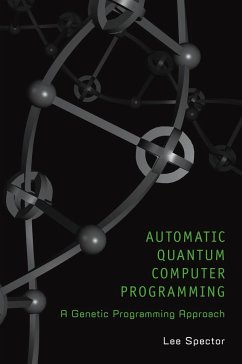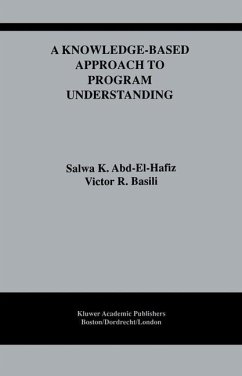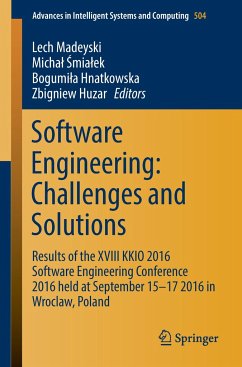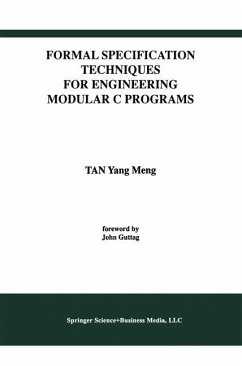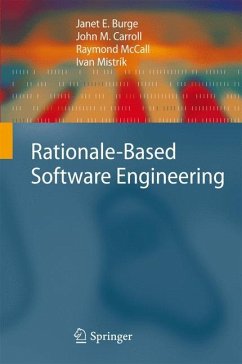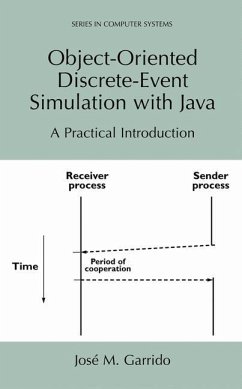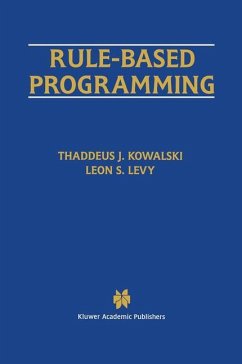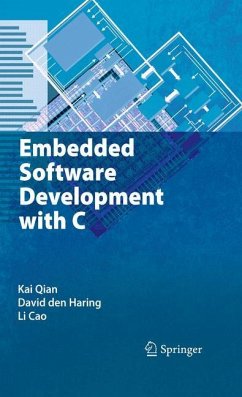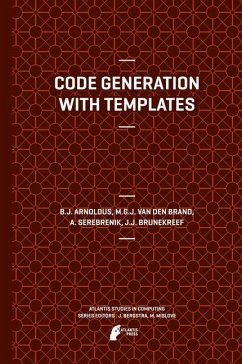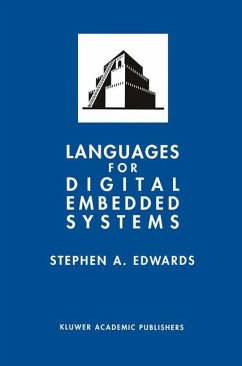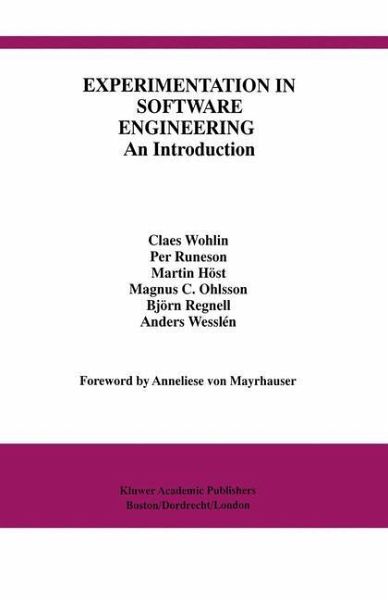
Experimentation in Software Engineering
An Introduction
Versandkostenfrei!
Versandfertig in 6-10 Tagen
38,99 €
inkl. MwSt.
Weitere Ausgaben:

PAYBACK Punkte
19 °P sammeln!
It is my belief that software engineers not only need to know software engineering methods and processes, but that they also should know how to assess them. Conse quently, I have taught principles of experimentation and empirical studies as part of the software engineering curriculum. Until now, this meant selecting a text from another discipline, usually psychology, and augmenting it with journal or confer ence papers that provide students with software engineering examples of experi ments and empirical studies. This book fills an important gap in the software engineering literature: it pro v...
It is my belief that software engineers not only need to know software engineering methods and processes, but that they also should know how to assess them. Conse quently, I have taught principles of experimentation and empirical studies as part of the software engineering curriculum. Until now, this meant selecting a text from another discipline, usually psychology, and augmenting it with journal or confer ence papers that provide students with software engineering examples of experi ments and empirical studies. This book fills an important gap in the software engineering literature: it pro vides a concise, comprehensive look at an important aspect of software engineer ing: experimental analysis of how well software engineering methods, methodologies, and processes work. Since all of these change so rapidly in our field, it is important to know how to evaluate new ones. This book teaches how to go about doing this and thus is valuable not only for the software engineering stu dent, but also for the practicing software engineering professional who will be able to - Evaluate software engineering techniques. - Determine the value (or lack thereof) of claims made about a software engineer ing method or process in published studies. Finally, this book serves as a valuable resource for the software engineering researcher.





